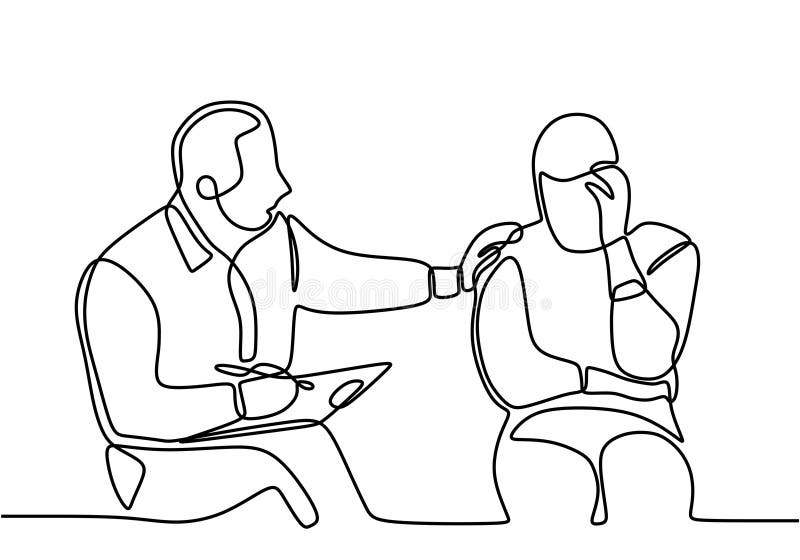Your Course to Recovery: Insights from the Best Psychologist in Delhi
Your Course to Recovery: Insights from the Best Psychologist in Delhi
Blog Article
Psych Treatment: A Comprehensive Overview to Strategies and Results

Cognitive-Behavioral Therapy
Cognitive-Behavioral Treatment (CBT) is a widely made use of psychotherapeutic method that concentrates on determining and modifying useless reasoning and behavior patterns. Created in the 1960s by Aaron T. Beck, CBT combines cognitive and behavioral concepts to deal with different psychological health concerns, consisting of depression, anxiousness, and stress-related problems.
Strategies such as cognitive restructuring, exposure therapy, and skill-building workouts are commonly utilized. Cognitive restructuring entails challenging and changing unfavorable thought patterns, while exposure treatment intends to decrease concern and anxiety with steady direct exposure to feared circumstances or things.
Evidence-based study sustains the efficacy of CBT for a vast array of emotional disorders - Best Psychologist in Delhi. Its emphasis on skill purchase and self-help methods encourages customers to proceed progress independently after therapy wraps up. The versatility and performance of CBT have actually made it a cornerstone in modern psychotherapeutic practice
Psychodynamic Methods
Rooted in the early theories of Sigmund Freud, psychodynamic techniques concentrate on discovering the subconscious mind and its impact on habits and feelings. These techniques aim to discover concealed thoughts and feelings that might be driving maladaptive actions and emotional distress. Central to this strategy is the principle of internal dispute, usually originating from unsolved previous experiences, especially those from youth.
Therapists utilizing psychodynamic techniques use numerous vital techniques, including totally free organization, where individuals are urged to talk easily to reveal subconscious product, and dream evaluation, which translates the concealed content of desires. Furthermore, the exploration of transfer and countertransference dynamics within the therapeutic partnership is crucial. These interactions can give insights into the person's interior globe and relational patterns.
Psychodynamic therapy is generally longer-term contrasted to other methods, using a comprehensive and deep understanding of the person's psyche. Study indicates that it can be specifically effective for intricate mental wellness problems, such as individuality conditions and persistent depression. By promoting self-awareness and psychological insight, psychodynamic treatment looks for to bring unconscious product to consciousness, allowing people to achieve purposeful and lasting adjustment in their lives.
Humanistic Strategies
Building on the foundations laid by psychodynamic strategies, humanistic techniques provide a distinctive viewpoint concentrated on private possible and self-actualization. Stemming in the mid-20th century, these techniques prioritize the fundamental benefits and development capacity of individuals, emphasizing an alternative view of human experience. Secret numbers such as Carl Rogers and Abraham Maslow have actually significantly influenced this restorative technique, which incorporates approaches like client-centered treatment and Gestalt treatment.
Client-centered therapy, created by Rogers, plays a pivotal duty in humanistic strategies. The therapist's role is even more of a facilitator than an authority, urging clients to harness their inner sources for healing.
Gestalt therapy, an additional crucial humanistic technique, highlights present minute understanding and the combination of mind and body. By concentrating on the "present moment," customers get higher insight right into their present feelings and behaviors. Techniques such as role-playing and led visualization are usually utilized to help customers acquire a much deeper understanding of themselves, eventually leading to boosted self-awareness and satisfaction.
Integrative Treatments
Integrative therapies stand for a synthesis of different healing methods customized to satisfy the unique requirements of each customer. This method recognizes the intricacy of human psychology and the diverse nature of mental health concerns. By combining aspects from various institutions of psychiatric therapy-- such as cognitive-behavioral therapy (CBT), psychodynamic therapy, and humanistic strategies-- integrative therapies supply a more adaptable and alternative treatment paradigm.
Professionals of integrative therapy examine each client's particular needs, signs and symptoms, and personal history to devise a customized therapy plan. click resources This individualized strategy enhances the potential for healing success by resolving the origin of mental distress and advertising overall health. Strategies may include mindfulness exercises, cognitive restructuring, and psychological processing, each selected to target various facets of the customer's issues.
In addition, integrative therapies stress the healing partnership, checking out the client-therapist bond as an important element of efficient therapy. This connection cultivates a helpful environment where customers feel click site safe to discover and address their problems. The versatility of integrative treatments makes them suitable for a wide range of conditions, including stress and anxiety, anxiety, injury, and interpersonal troubles, thus raising their applicability and performance in varied professional setups.

Determining Therapy End Results
Examining the effectiveness of psychiatric therapy is crucial for both medical professionals and customers to make sure that the therapy is producing the preferred end results. To achieve this, various techniques and devices are employed to gauge therapy results systematically. Standard analysis tools, such as the Beck Depression Stock (BDI) and the Generalized Stress And Anxiety Condition 7 (GAD-7), give measurable data on signs and symptom severity and changes over time.
Along with standard tools, qualitative techniques like client self-reports and medical meetings use beneficial insights right into the individual experiences and perceived progression of customers. Consistently scheduled analyses, commonly at the beginning, axis, and end of treatment, help in tracking the trajectory of renovation or determining locations needing adjustment.
Outcome measurement is not limited to signs and symptom decrease; it additionally encompasses useful improvements in day-to-day live, such as far better social relationships, boosted work productivity, and enhanced total wellness. Modern developments in digital wellness have actually introduced mobile applications and on the internet platforms that assist in real-time tracking and comments, further improving the evaluation procedure.
Eventually, an extensive strategy to determining treatment results guarantees that healing interventions work, effective, and tailored to satisfy the individual requirements of clients, consequently optimizing the general therapeutic experience.
Final Thought
Psychotherapy uses a multifaceted variety of strategies aimed at addressing particular psychological health problems and boosting overall wellness. Cognitive-Behavioral Therapy and psychodynamic strategies target dysfunctional ideas and unconscious influences, respectively. Humanistic strategies concentrate on personal growth and self-actualization, while integrative therapies incorporate numerous methods for tailored treatment strategies. Reviewing therapy outcomes through standardized evaluations and qualitative approaches guarantees a detailed understanding of efficiency, inevitably leading customers towards withstanding psychological health and wellness improvements.
From the organized method of Cognitive-Behavioral Treatment (CBT) to the deep exploration of the unconscious in psychodynamic therapy, each approach brings special benefits. Its emphasis on ability purchase and self-help techniques encourages clients to continue progress independently after treatment wraps up (Best Psychologist in Delhi). Key numbers such as Carl Rogers and Abraham Maslow have view publisher site considerably influenced this healing technique, which encompasses approaches like client-centered therapy and Gestalt treatment

Report this page